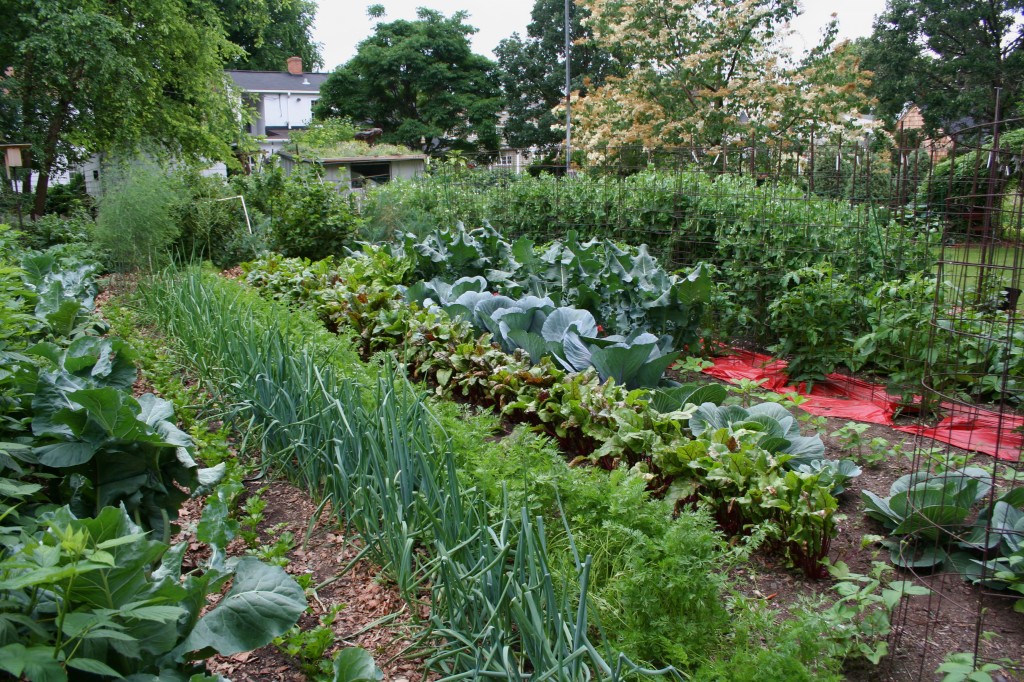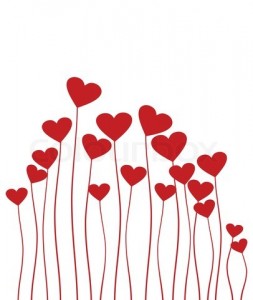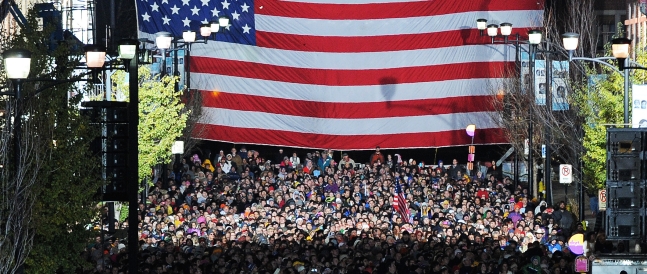The Declaration of Interdependence
Dedicated with fondness and respect to my brothers from the Asheville workshop.
Imagine a rich, lush garden, with row after row after row of healthy green plants, producing every variety of vegetable, above and below ground, vegetables of every size and color and shape.
 And imagine, standing in the midst of this luxurious garden, a solitary man, the gardener, who tends the garden with devotion, weeding and pruning, watering and fertilizing the rich, dark soil of the garden day in, day out, without fail.
And imagine, standing in the midst of this luxurious garden, a solitary man, the gardener, who tends the garden with devotion, weeding and pruning, watering and fertilizing the rich, dark soil of the garden day in, day out, without fail.
Every day, the garden and the gardener spend their time together, their relationship, their dance. The gardener gardens, and the garden grows.
In this relationship, who is the giver, and who is the recipient?
One might assume that because of the sweat of his brow, the backbreaking work and his endless devotion, day after day, to the needs of the garden, the gardener is clearly the giver in this relationship. It’s not like the pepper plant has to exert a whole lot of energy just to be a pepper plant, right? The gardener is doing all of the doing. The garden is just being a garden.
Not so fast: at the moment of harvest, the gardener becomes the sole recipient of the result of every ray of sunshine and drop of water over the past months. His wheelbarrow groans under the weight, his pantry overflows. Everything produced by the garden becomes his, providing nourishment for his body and delight for his senses. Not only do the plants give up everything they have to him; upon doing so, they die, their purpose accomplished.
So is the gardener the giver or the receiver in this relationship?
 An old physician from a generation gone by once lamented to me, “the downfall of modern medicine began with the invention of the stethoscope.”
An old physician from a generation gone by once lamented to me, “the downfall of modern medicine began with the invention of the stethoscope.”
“How so,” I asked?
“In the old days, the physician actually had to put his ear against the chest of the patient; we had to be physically connected, body to body, to do our work. At the end of an appointment, while still in the examination room, the patient would physically hand the doctor some payment—cash, or later a check. Very often, patients were poor and could not afford to pay the doctor, so they would offer baskets of fruit and vegetables instead, or provide chickens or lambs in exchange.”
“Now we have not only have the stethoscope, but we send our patients to labs across town for imaging and blood work. A physician rarely actually sees his own patient’s blood, unless it is an acute emergency. And I have no idea whether my patients pay their bills or not. I’m paid by an insurance company, or a medical billing company that follows up with the patient. I don’t have any idea when or if a patient has provided me anything in exchange for my service.”
In fact, a recent poll of American primary care physicians revealed almost two thirds—sixty percent—of physicians would change careers tomorrow if they could, and why? Because doctors spend too much time with their insurance companies and not enough time with their patients, and, after all, it wasn’t the relationship with the insurance company that attracted most doctors to sign up for the practice of medicine.
We don’t even call our doctors “doctors” anymore—our insurance companies (the ones who took over our primary relationship with them) now call them “health care providers.”
My doctor provides me with his practice of medicine. His patients, in exchange, pay him, and with that money, he buys fruits and vegetables for his family and takes his children to the dentist. Who is providing health care for whom? My doctor is caring for me and I am making it possible for him to feed his children. Who is the provider in our relationship?
Who is the giver, and who is the receiver?
In the case of the old-fashioned doctor who treated an illness in return for a goat and a chicken and a basket of vegetables, who was the provider?
In every relationship where we can find a giver—a teacher, a doctor, a therapist, a breadwinner—that person is also a receiver. But Americans, in particular, are not quick to notice this. This is a country that began, after all, with a Declaration of Independence. We are not so fond of reliance on others.
In previous articles I’ve described the difference between two opposite ways of using boundaries to create safety: safety through separation, and safety through connection. Safety through separation says when every house has a fence around it and every homeowner has a shotgun, we will have safety. Safety through connection says that when there are no fences and no shotguns, then we will have safety. The first approach says, “I don’t need you, I can take care of myself, thank you.” The second way says, “We depend on each other for our survival.”
 In classic massage, there’s a giver and a receiver. There’s someone who lays on the table and someone who plays the role of provider. Sometimes people will arrange a massage “exchange” where the role of giver and receiver are traded part way through the massage. Even in this scenario, an experienced masseur knows that it is not possible to touch someone without being touched in return, and that in giving there is also receiving. And an experienced recipient of massage knows that there is more to it than lying there passively and having someone work on you. If we work with the masseur in genuine partnership, breathing into the spots that are being touched, consciously releasing where we are experiencing challenge, the massage is more meaningful.
In classic massage, there’s a giver and a receiver. There’s someone who lays on the table and someone who plays the role of provider. Sometimes people will arrange a massage “exchange” where the role of giver and receiver are traded part way through the massage. Even in this scenario, an experienced masseur knows that it is not possible to touch someone without being touched in return, and that in giving there is also receiving. And an experienced recipient of massage knows that there is more to it than lying there passively and having someone work on you. If we work with the masseur in genuine partnership, breathing into the spots that are being touched, consciously releasing where we are experiencing challenge, the massage is more meaningful.
In Touch Practice, I am neither creator nor leader nor teacher nor giver. I play the role of the gardener. I reap an enormous harvest of riches, trust me: at the end of the harvest, I eat well, and my pantry is full. Touch Practice is neither an instruction in how to give touch, nor how to receive touch, but it is an exploration of the relationship between gardener and garden, an examination of the seamless cycle of giving and receiving, providing for and being taken care of. It is all of those things. It is a practice of nourishing each other and helping each other come fully alive, just as a good gardener helps a pepper plant come fully alive.
If the gardener tends the garden with devotion and puts good things into the earth, good things result; he is nourished and fortified by the fruits of his efforts. If the gardener puts toxic things into the earth, the gardener eventually feeds upon his own toxins; the things he puts out into the world come back to him. This is the very simple principle some describe as “karma,” which is not, as many people imagine it, a kind of divine spite or retribution. It’s more mechanical than that, and it has no moral judgment attached to it.
 When you stick your fingers into an electrical outlet, you don’t get a shock because you’re being punished for something. An electrical shock is not a moral judgement. You simply are experiencing the nature of reality and the laws of electricity, and so it is with touch, and with our relationship with each other. There is no punishment; there is simply cause, and effect.
When you stick your fingers into an electrical outlet, you don’t get a shock because you’re being punished for something. An electrical shock is not a moral judgement. You simply are experiencing the nature of reality and the laws of electricity, and so it is with touch, and with our relationship with each other. There is no punishment; there is simply cause, and effect.
If you fart in a small, confined space, you experience what you created. It’s that simple. It’s not any more complicated in human relationships, honest. It’s not any less clear in the most complicated touch-based relationship. It involves some very simple mechanics. (And yes I hope that example will be useful to you, if only in that it should be very easy to remember!)
 There are many, many gardeners in the world of loving touch. There are millions of gardens. I met some of the other gardeners this weekend, men who are tending just a plant or two, and others with vast farms of vegetables. We all grow different crops; we all have a desire to give but at the same time have needs of our own, nourishment that we ourselves need to be well, food for our own bellies.
There are many, many gardeners in the world of loving touch. There are millions of gardens. I met some of the other gardeners this weekend, men who are tending just a plant or two, and others with vast farms of vegetables. We all grow different crops; we all have a desire to give but at the same time have needs of our own, nourishment that we ourselves need to be well, food for our own bellies.
 All of you anywhere who are gardeners, tend your gardens, and trust that they will provide for you at the end of the season. What we put out will come back to us. If we put out suspicion, we will find ourselves surrounded by suspicious characters. If we put out endless judgments, we will be surrounded by those who scrutinize us. If we keep an eye out for beauty and nobility in humanity, we will inexplicably find ourselves surrounded by gorgeous people of great integrity. If we practice openness, we will find ourselves accepted everywhere. If we hold everyone else with love and acceptance, no part of our own selves need ever go unwelcomed or invalidated.
All of you anywhere who are gardeners, tend your gardens, and trust that they will provide for you at the end of the season. What we put out will come back to us. If we put out suspicion, we will find ourselves surrounded by suspicious characters. If we put out endless judgments, we will be surrounded by those who scrutinize us. If we keep an eye out for beauty and nobility in humanity, we will inexplicably find ourselves surrounded by gorgeous people of great integrity. If we practice openness, we will find ourselves accepted everywhere. If we hold everyone else with love and acceptance, no part of our own selves need ever go unwelcomed or invalidated.
In the end what matters is that we love one another. Spring is almost here, and with it, time to put another set of crops in the ground. Plant love, brothers. Plant love.
Have thoughts you’d like to share?
Touch Practice is a sacred practice for me, and part of that is keeping confidences sacred. While a name and e-mail address are required to post a comment, feel free to use just your first name, or a pseudonym if you wish. Your e-mail address will never be seen by or shared with anyone. It is used to prevent spam and inappropriate comments from appearing in the blog. I’d really like to hear from you!














Very poetic and perfect timing for this metaphor.
Thank you, Dave!
Thank you for such a beautifully written article. Food for thought 😀
And yes, I was touched <3
Thanks for visiting the blog, Theresa!